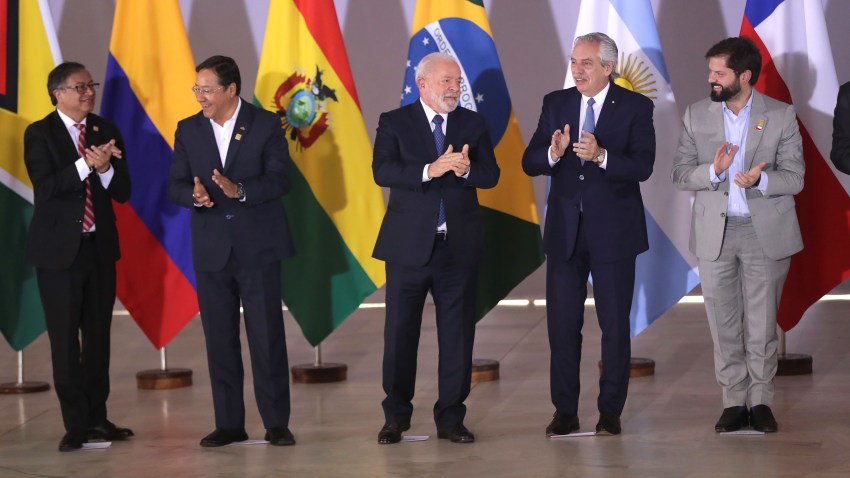Brazilian President Luiz Inacio Lula da Silva hosted a meeting of South America’s presidents in Brazil last week, the first such gathering since the final summit of the Unasur forum in 2014. As part of his effort to revive multilateralism and advance regional integration in South America, Lula included a mention of financial integration, hinting at some sort of mechanism to conduct trade outside of the U.S. dollar system. “I want to deepen our South American identity also in the monetary area,” Lula said, “through a more efficient payment system and the creation of a common unit of reference for trade to reduce dependence on extra-regional currencies.”
It wasn’t the first time Lula had raised the idea since taking office on New Year’s Day. In January, he floated the idea of a regional currency—the sur, Spanish for south—ahead of the CELAC summit of all Latin American heads of state and government held in neighboring Argentina. Clearly, this is a subject on Lula’s mind.
Granted, his comments about financial integration and currencies, as well as every other topic discussed at the summit, were overshadowed by the presence of Venezuelan President Nicolas Maduro. Similarly, it wasn’t the first time Maduro rubbed shoulders with regional leaders at such a gathering in recent years, as he had also attended CELAC meetings in Mexico in 2021 and Argentina—where Lula first mentioned the sur—in January. But it was still striking to see the Venezuelan dictator treated as an equal by most of the democratically elected leaders in South America.

